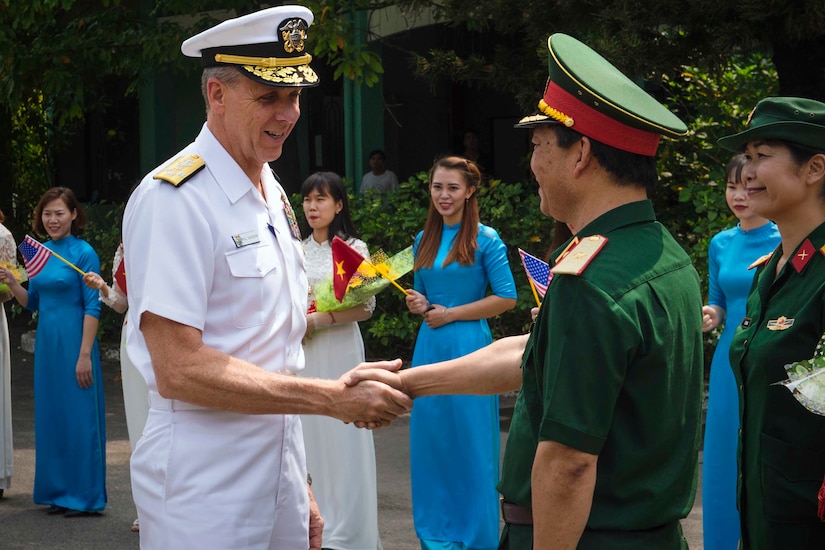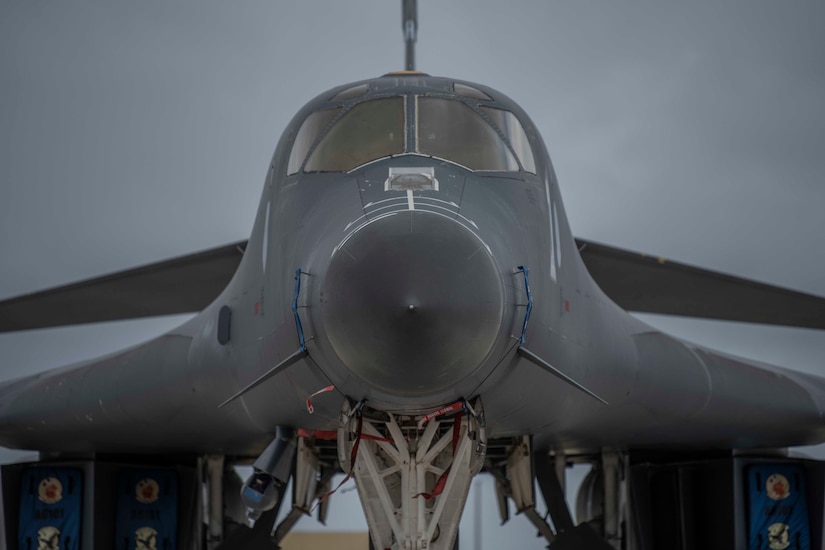Navy Adm. Philip S. Davidson held a virtual meeting today with the nonprofit association of military and national security correspondents, and he repeatedly stressed the danger to the free world that is posed by the Chinese Communist Party's rule over the world's most populous country.
The region is about opportunity, as Indo-Pacific basin nations will represent two-thirds of the world's economy in 10 years, the admiral said. With its long Pacific coastline, he noted, the United States is an integral part of the region.

Since World War II, the nations of the region have taken advantage of the peace and developed at a phenomenal rate. Japan had been flattened during the war and grew to be the world's second-largest economy in the 1980s. South Korea was a developing nation in 1945. It is the world's 12th-largest economy today, making the leap from an agrarian economy to a high-tech, industrialized society in a generation.
Other nations have also made impressive gains, including Thailand, Vietnam, Indonesia, Brunei, Malaysia and Singapore.
However, the country that made the biggest leap is China. Since the nation opened up to the West following President Richard Nixon's visit in 1972, the country has experienced immense growth and is now the world's second-largest economy. It has profited immensely from the rules-based international order.

Security is a requirement for such prosperity, and Davidson said he sees major security challenges in the Indo-Pacific region. "First and foremost, I think the greatest strategic challenge to the United States comes from the People's Republic of China," he said. Davidson also said Russia is a factor in the Indo-Pacific region, and North Korea continues to be a challenge. Indo-Pacom also faces the threat of violent extremist organizations in the region, most notably in the Philippines, the admiral told the group. "And, then, of course, we have natural and manmade disasters here," he added.
A natural disaster that has far-reaching consequences is the coronavirus pandemic. "I would say that the values of a free and open Indo-Pacific are even more critical today as we operate under the impacts of COVID-19," Davidson said. "We face increasing challenges to the established rules-based international order in that environment, as many nations are forced to divert substantial resources in the form of troops, money [and] certain mitigations … to handle the COVID-19 crisis [and] to help plan for future efforts."
Nations are hurt by the pandemic, and Davidson said he sees the Chinese Communist Party emboldened by that fact. "[The party] seeks to exploit this current global pandemic crisis, and they're doing so with more assertive military behavior, malign diplomatic and information behavior throughout the Indo-Pacific and, really, across the globe," he said.

"Make no mistake the party is actively seeking [to] supplant the established rules-based international order, trying to dictate new norms and behaviors [to] the international community — one that they articulate as a new order with Chinese characteristics," the admiral said.
What the nation is doing against minorities inside China, disregarding the rights of those in Hong Kong, issuing threats to Taiwan, and continuing the militarization of the South and East China Seas gives all nations pause, he said.
"Indeed, the region as a whole is in a strategic competition with Beijing," the admiral said. "But I want to make clear [neither] the international order nor the United States seeks to contain China, nor do we seek conflict."
Times have changed, and the nature of war is morphing, military leaders have said. "We remain aware that we can certainly lose without fighting in this environment as well," Davidson said. "So deterrence is critically important, and I'm a key advocate for that. It's important to keep Beijing from achieving its goal of overturning the rules-based international order in the pernicious manner in which they're trying to do it. We must ensure our diplomatic and economic efforts are reinforced by a strong military deterrent."








No comments:
Post a Comment